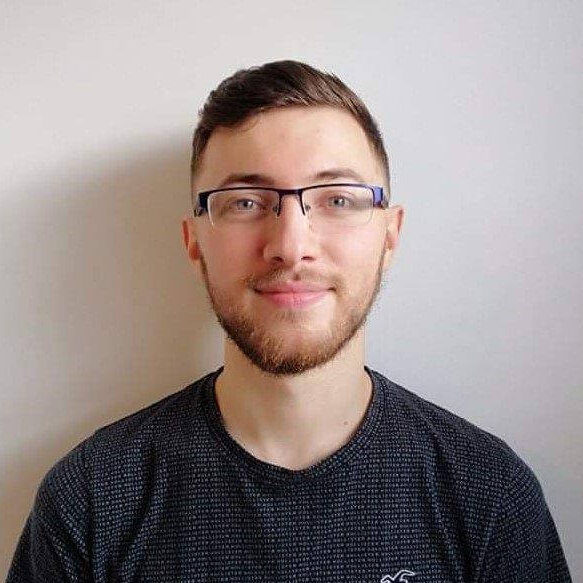Kieron (he/him) is a first year PhD student at the Distributed Algorithms CDT, part of the University of Liverpool. In this article he reflects on his own journey prior to joining the CDT, and gives his advice to others searching for the right PhD project.
During the thesis writing stage of my Master’s in Physics, I began exploring what lay beyond undergraduate degrees, both in academia and in the world of employment. I decided on a PhD as I had been considering a move to Computer Science for some time, and this was a good opportunity to hone my skillset instead of trying to dive in without a good background in the area. I still benefit from my Physics background, and have found that having experience in both is opening a lot of doors for the future.
Currently I am working on using machine learning techniques to improve the functionality of augmented reality displays in cars. I am lucky to have a group that is placed on the boundary of academia and industry, since it provides opportunities for placements, collaborations, and other projects in the future. One thing that can sometimes go unmentioned with PhDs is how rewarding it can be to see something you have worked on or helped with come to fruition



